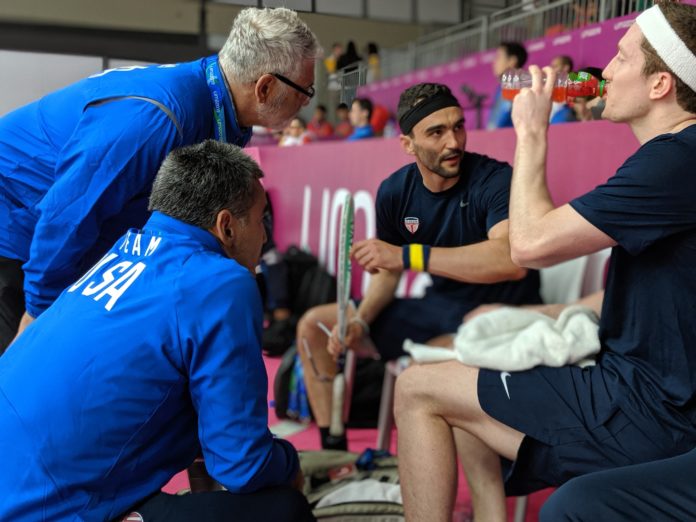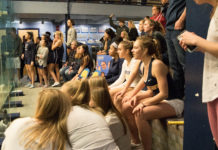by Nyree Dardarian, Director, Center for Nutrition & Performance, Drexel University
During the 2019 Pan American Games in Lima, Peru, my job was to support the U.S. men’s and women’s squash team nutritionally while they were going for gold.
Every aspiring gold medalist has to out-organize their opposition. During competitions overseas, it means preparing and strategizing for one’s nutritional needs. For sports nutrition, this includes packing pre-game foods, refueling snacks, insport Dragon Gels, an emergency meal replacement as well as scoping out the local food scene. I brought eighty-four pounds of protein bars; dried fruits and Dragon Gels to Lima (remember to check fuel bars in luggage) and my entire luggage thankfully arrived at Lima’s airport. I also packed a refractometer to measure the hydration status of the athletes and created an online wellness survey for the athletes.
There are a lot of distractions associated with competing on foreign soil: local customs, climate (it was winter in Peru), facilities and accommodations. That is why it is so important to adhere to a consistent schedule when it comes to food. Preparation and creativity are key. Once on the ground it also is important to evaluate the local food scene in the athlete’s village and at the sports venues to methodically prepare. For Peru, this was difficult since supermarkets were not easily accessible and the squash matches were staged over Independence Day, a national weekend holiday in Peru. Just like the game of squash, athletes must be flexible and ready to change the game plan when needed.
Below are nutritional key strategies that can minimize the potential for any interference in your performance. Using these guidelines before, during and after your travel will allow you to stay on top of your game.
Plan ahead
- Boost your immune system. In the two weeks leading up to the event, consume a serving of probiotic rich foods such as yogurt, kefir, and sauerkraut.
- Pack your pre-game, in-sport and post-game/recovery foods. Plan your meals according to your competition schedule. If there are certain food items you rely on for your pregame, in-sport and post-game routine, bring them with you, as they may not be available at your final destination. Pack a cooler bag and a water bottle to keep your foods and drinks in the right temperature zones to minimize the risk of foodborne poisoning. Don’t drink the local tap water in countries where it is deemed to be unsafe—use only bottled water.
During travel
- Fuel up with carbohydrates. The vegetarian meal choice on most airlines is usually rice or pasta based. Contact your airline to order your meal at least forty-eight hours in advance. Stay hydrated by sipping on green tea and chamomile tea, which can help strengthen your immune system and keep you hydrated at the same time. Pack enough tea bags with honey sticks to allow you to drink an eight-ounce cup of tea for every hour of your flight.
At destination
- Keep it familiar. To prevent any food-related illnesses, save unique cultural dishes for after your event. Eat your meals according to the time zone you are in as opposed to your internal clock. This may help minimize jet lag. If you are competing at altitude, adjust your hydration schedule.
Performance nutrition is a powerful tool to outplay and outsmart your competition. Feeling confident about your nutrition and hydration will allow you to focus on your game.





